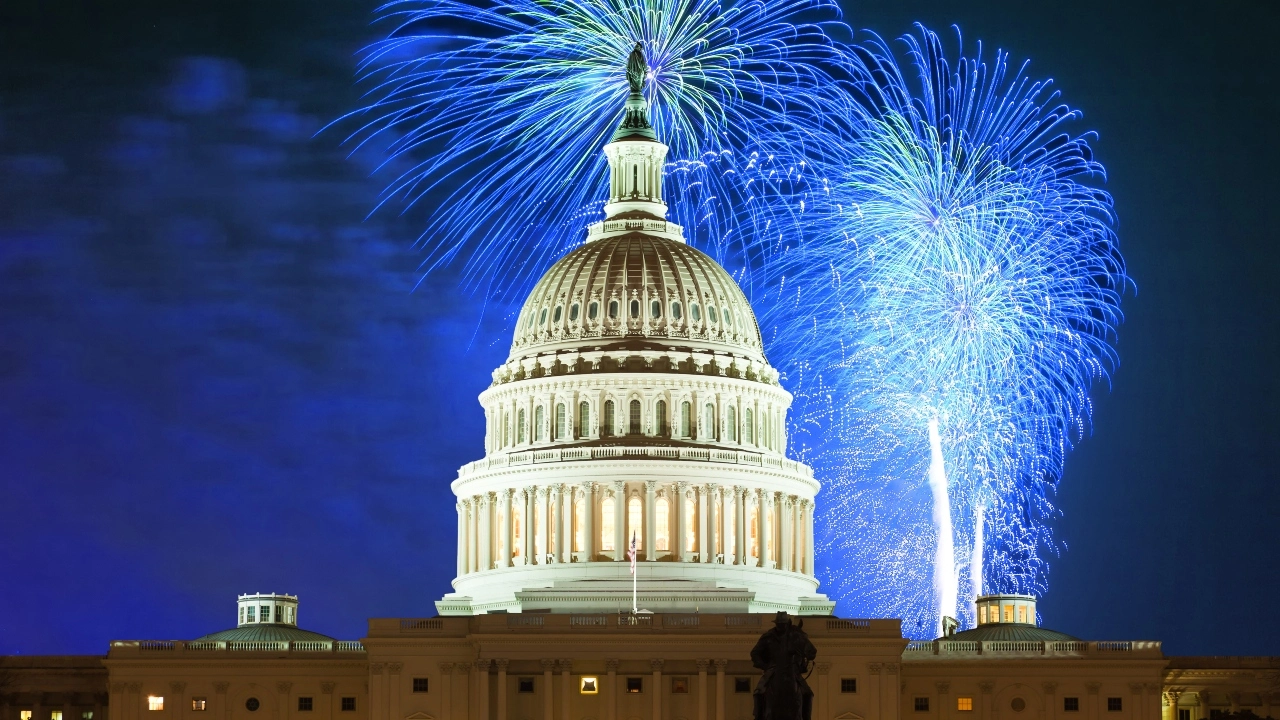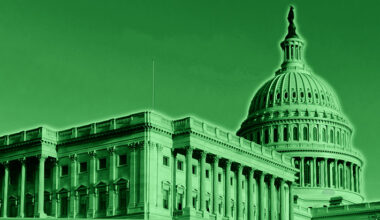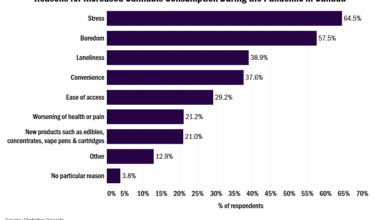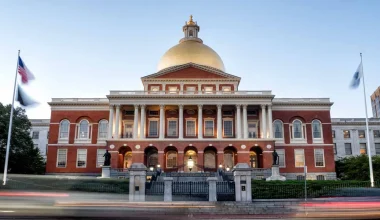As the wheels of the U.S. federal government – or most of them – remain halted following the budget impasse and resultant shutdown that began at midnight Oct. 1, progress toward realizing the $32 billion cannabis industry’s Washington wishlist is also frozen.
While some observers think it could be until next summer before there’s a reckoning on intoxicating hemp-derived THC products – which several Republican lawmakers want to ban – the shutdown should have no impact on President Donald Trump’s plans to reschedule marijuana.
Whatever it is the president wants to do and whenever he plans to do it, that is.
And those two points remained speculative Friday, several lobbyists and Washington insiders told MJBizDaily.
“We don’t expect the shutdown to have any meaningful impact on cannabis reform,” said Michael Bronstein, the president of the American Trade Association for Cannabis and Hemp (ATACH), which counts licensed cannabis operators and their hemp-derived THC competitors among its members.
Trump’s marijuana rescheduling plans unaffected
Cannabis stocks spiked significantly last week after Trump posted a video extolling the benefits of CBD to his Truth Social page.
That fueled speculation that his promised decision on reclassifying cannabis as a Schedule 3 drug was imminent – but neither the president nor the producer of the video, a pro-MMJ outfit called The Commonwealth Project, have pushed the issue since.
The Commonwealth Project, fronted by billionaire Howard Kessler, a member of Trump’s Mar-a-Lago Club, did not comment to MJBizDaily.
“The Trump administration could announce a decision on rescheduling at any time, even in the midst of a shutdown,” Bronstein said.
“Meanwhile, continued discussions on addressing intoxicating hemp are expected to resume after the shutdown.”
Key federal cannabis policy reform business is on hold
Likely to last past midweek after compromises failed Friday and no progress in the Senate over the weekend, the shutdown will last until Congress can come to terms on what’s called a “clean continuing resolution,” a spending bill that will keep the government running for a period of time, generally accepted to be mid-November, that does not include new laws or other provisions.
That means at least a partial pause on progress for the two main concerns in Washington for the combined American THC industry – the catch-all category that includes both hemp-derived intoxicating products as well as state-regulated marijuana markets.
A group of mostly Republican lawmakers, led by Maryland U.S. Rep. Andy Harris and Kentucky Sen. Mitch McConnell, are pushing hard to redefine hemp under federal law to – in their words – close the “loophole” created by the 2018 Farm Bill that’s seen hemp-derived THC products proliferate across the country.
The former majority leader and a Farm Bill author whose constituents include many hemp farmers, the retiring McConnell is adamant on fixing what he and many others have come to recognize as a mistake.
Subscribe to the MJBiz Factbook
Exclusive industry data and analysis to help you make informed business decisions and avoid costly missteps. All the facts, none of the hype.
What you will get:
- Monthly and quarterly updates, with new data & insights
- Financial forecasts + capital investment trends
- State-by-state guide to regulations, taxes & market opportunities
- Annual survey of cannabis businesses
- Consumer insights
- And more!
Hemp THC ban unlikely to be resolved
So far, efforts to include language that would redefine hemp to eliminate THC from the equation have failed.
That’s thanks in large part to fellow Kentucky Republican Sen. Rand Paul, who in early August deployed a parliamentarian trick to preserve federal protections for hemp-derived THC drinks, gummies and THCA flower.
But, Paul warned last month, his colleagues’ “prohibitionist” intents remain.
Although Trump and McConnell are at odds, Majority Leader John Thune of South Dakota is understood to be sympathetic to McConnell’s wishes.
However, Paul is also understood to be dedicated to preserving the hemp-THC industry – and may be willing to employ other stalling tactics to hold up larger legislation to keep McConnell’s ban out.
If he does, Thune and Republican leadership might be willing to remove the THC ban language to reopen the government.
In either case, observers expect Congress to be back in a similar situation in a few weeks when that continuing resolution expires.
“This leaves little room for a prolonged negotiation or intra-party conflict over the problematic McConnell-Harris hemp ban,” said Charlie Panfil, vice president of DB3, the lobbying arm of major Washington law and policy firm Baker Donelson.
“I would not be surprised if the provision is removed again, as we saw earlier this summer, and the fight over intoxicating hemp is deferred to the next Farm Bill, which could be completed by the end of the year or early 2026,” he said.
Chris Roberts can be reached at chris.roberts@mjbizdaily.com.
Medical Disclaimer:
The information provided in these blog posts is intended for general informational and educational purposes only. It is not a substitute for professional medical advice, diagnosis, or treatment. Always seek the advice of your physician or other qualified healthcare provider with any questions you may have regarding a medical condition. The use of any information provided in these blog posts is solely at your own risk. The authors and the website do not recommend or endorse any specific products, treatments, or procedures mentioned. Reliance on any information in these blog posts is solely at your own discretion.






